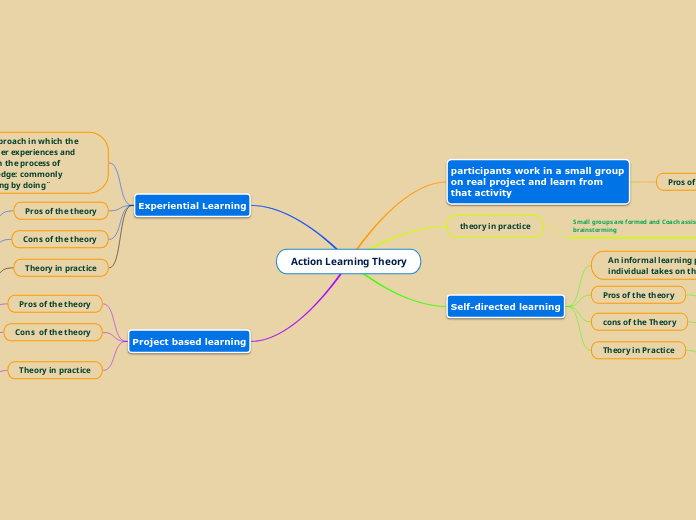Action Learning Theory
Project based learning
In groups students search out possible plans or proposal to decide what to do for a voted project
Cons of the theory
Problem solving may differ among cultures, causing problems among group of members during activities.
Participants are able to participate in learning scenarios directly applicable to real world.
Experiential Learning
Theory in practice
mentors learn how to interact their previous experiences to advance in their positions
Cons of the theory
Learners may bring different cultural experiences or perspectives to the learning experience.
Learners bring their own life experience to the learning situation
Holisitic learning approach in which the learner utilizes his/her experiences and learning strengths in the process of constructing knowledge: commonly referred to as Learning by doing¨
Self-directed learning
Theory in Practice
Students ensure what they want to get by researching in details
cons of the Theory
Some situations lend themselves to self-directed learning better than others.
Students are motivated by external motivation
An informal learning process in which an individual takes on the responsability
theory in practice
Small groups are formed and Coach assist them in brainstorming
participants work in a small group on real project and learn from that activity
Pros of the theory
Small groups learn by solving real world problems
cons of the theory
Difficulty balancing accomplishing the work with learning from the work.
Challenges imposed by group dynamics.

